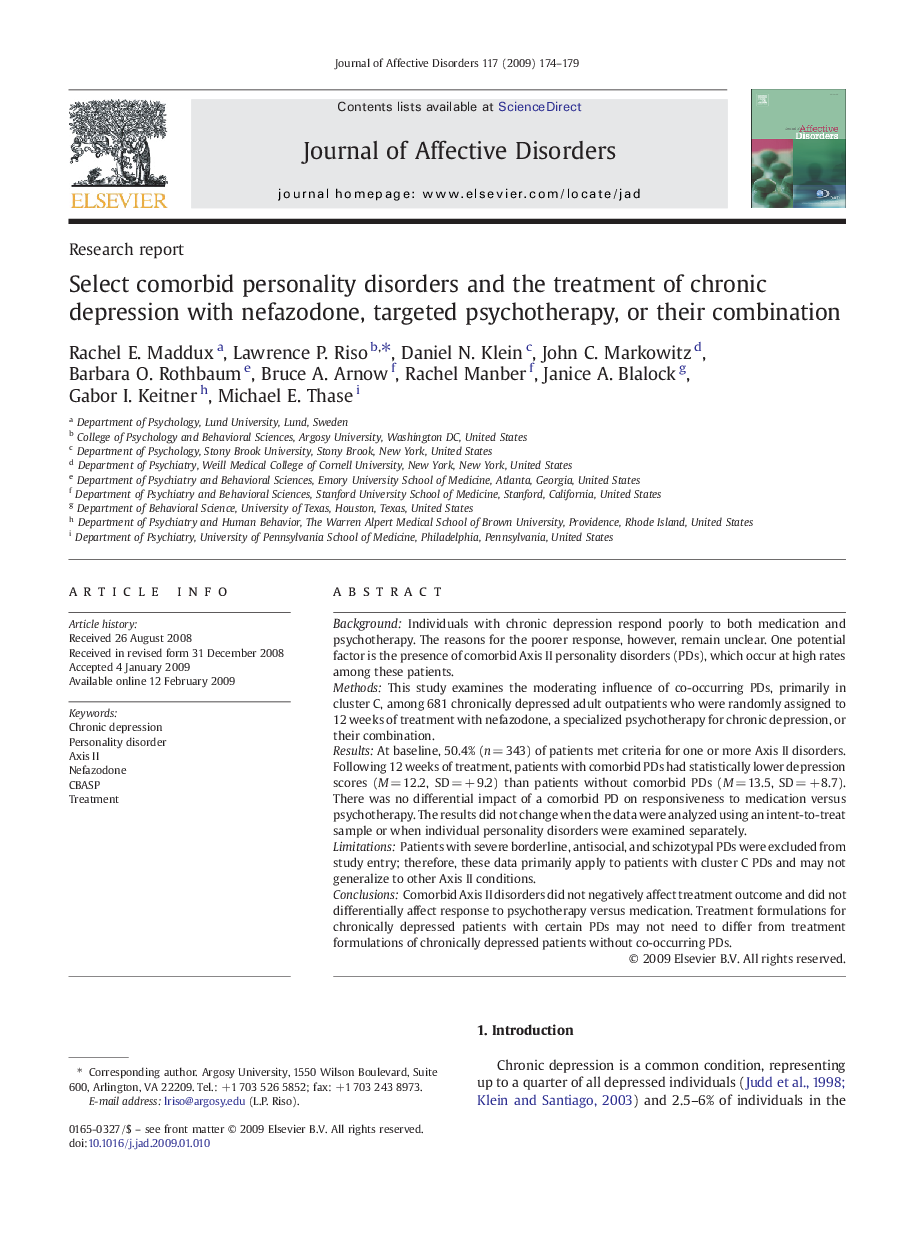| Article ID | Journal | Published Year | Pages | File Type |
|---|---|---|---|---|
| 4187206 | Journal of Affective Disorders | 2009 | 6 Pages |
BackgroundIndividuals with chronic depression respond poorly to both medication and psychotherapy. The reasons for the poorer response, however, remain unclear. One potential factor is the presence of comorbid Axis II personality disorders (PDs), which occur at high rates among these patients.MethodsThis study examines the moderating influence of co-occurring PDs, primarily in cluster C, among 681 chronically depressed adult outpatients who were randomly assigned to 12 weeks of treatment with nefazodone, a specialized psychotherapy for chronic depression, or their combination.ResultsAt baseline, 50.4% (n = 343) of patients met criteria for one or more Axis II disorders. Following 12 weeks of treatment, patients with comorbid PDs had statistically lower depression scores (M = 12.2, SD = + 9.2) than patients without comorbid PDs (M = 13.5, SD = + 8.7). There was no differential impact of a comorbid PD on responsiveness to medication versus psychotherapy. The results did not change when the data were analyzed using an intent-to-treat sample or when individual personality disorders were examined separately.LimitationsPatients with severe borderline, antisocial, and schizotypal PDs were excluded from study entry; therefore, these data primarily apply to patients with cluster C PDs and may not generalize to other Axis II conditions.ConclusionsComorbid Axis II disorders did not negatively affect treatment outcome and did not differentially affect response to psychotherapy versus medication. Treatment formulations for chronically depressed patients with certain PDs may not need to differ from treatment formulations of chronically depressed patients without co-occurring PDs.
